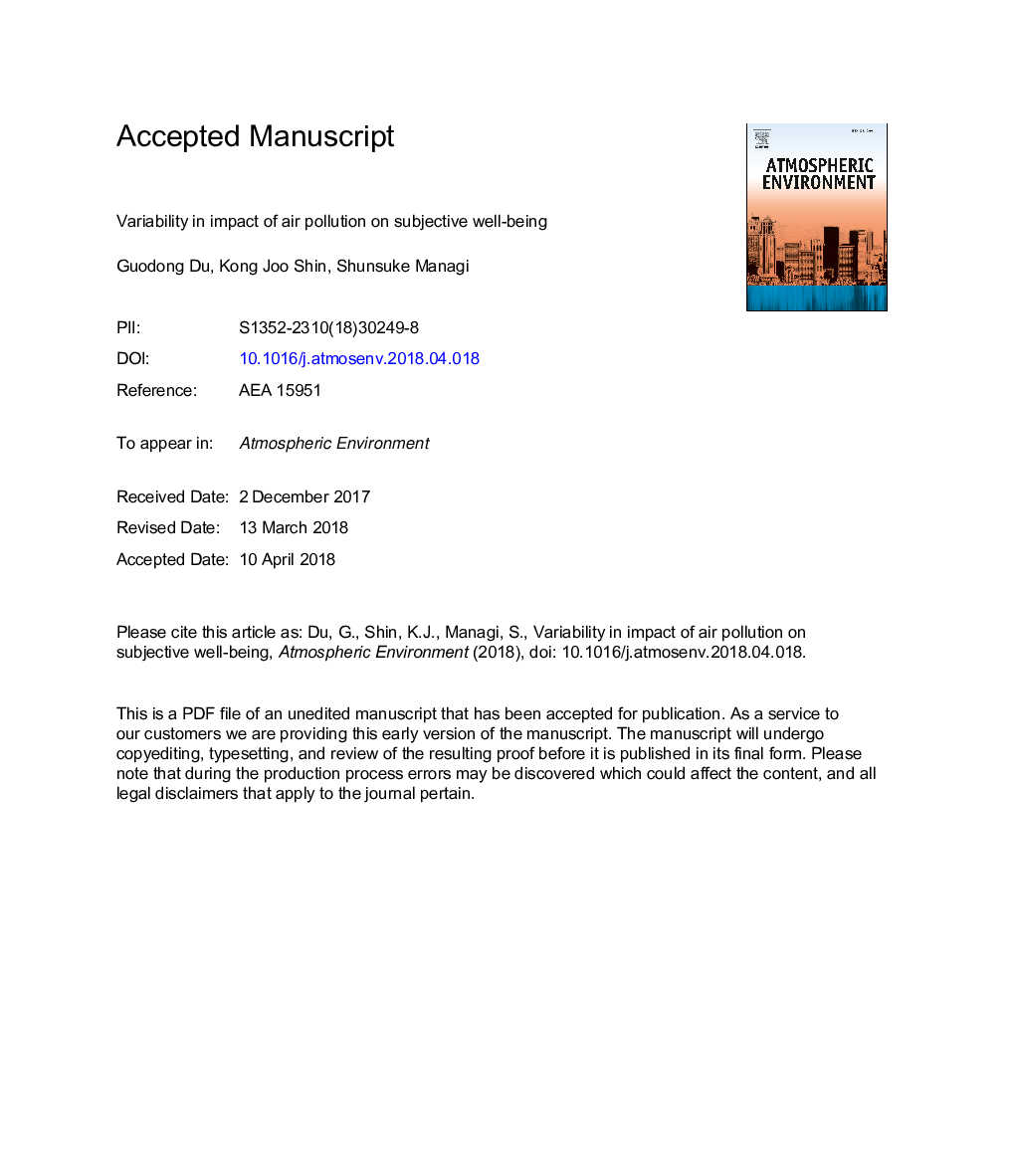| Article ID | Journal | Published Year | Pages | File Type |
|---|---|---|---|---|
| 8863839 | Atmospheric Environment | 2018 | 66 Pages |
Abstract
This paper examines the impact of variability in impact of air pollution on life satisfaction (LS). Previous studies have shown robust negative impact of air pollution on subjective well-being (SWB). However, empirical studies that consider variability in air pollution effects through comparative city study are limited. This study provides comparative evaluation of two major Chinese cities: Beijing and Shanghai. We apply a geo-statistical spatial interpolation technique on pollution data from monitoring sites to estimate the Sulfur Dioxide (SO2), Nitrogen Dioxide (NO2), coarse particles with a diameter between 2.5 and 10â¯Î¼m (PM10) and fine particles with a diameter of 2.5â¯Î¼m or less (PM2.5) pollution exposure of respondents of a survey conducted in 2016. The results show that all pollutants have robust negative impacts on LS for Beijing residents, whereas only SO2 and NO2 have significant negative impacts on LS for Shanghai residents; Per unit impact of SO2 is greater in Shanghai, and that of NO2 is greater in Beijing. Beijing and Shanghai residents have almost same monetary valuation for SO2 reduction but Beijing residents place approximately 1.5 times valuation on NO2 reduction compared to Shanghai residents. Moreover, the LS of Beijing residents is sensitive to temporal changes in the pollution level, whereas Shanghai residents are unaffected by such changes.
Related Topics
Physical Sciences and Engineering
Earth and Planetary Sciences
Atmospheric Science
Authors
Guodong Du, Kong Joo Shin, Shunsuke Managi,
